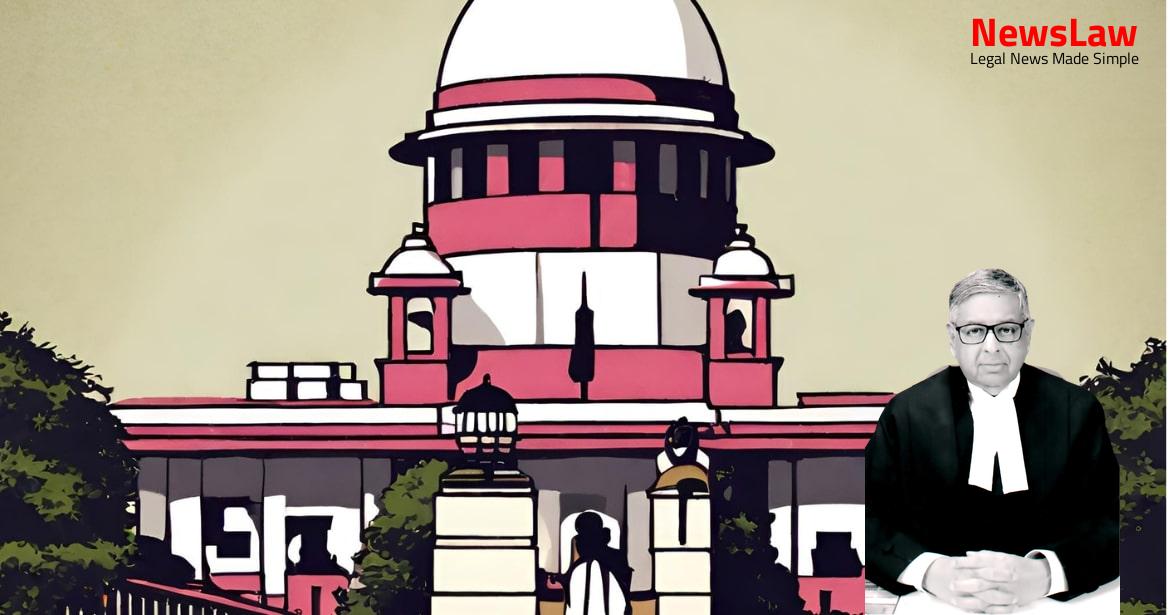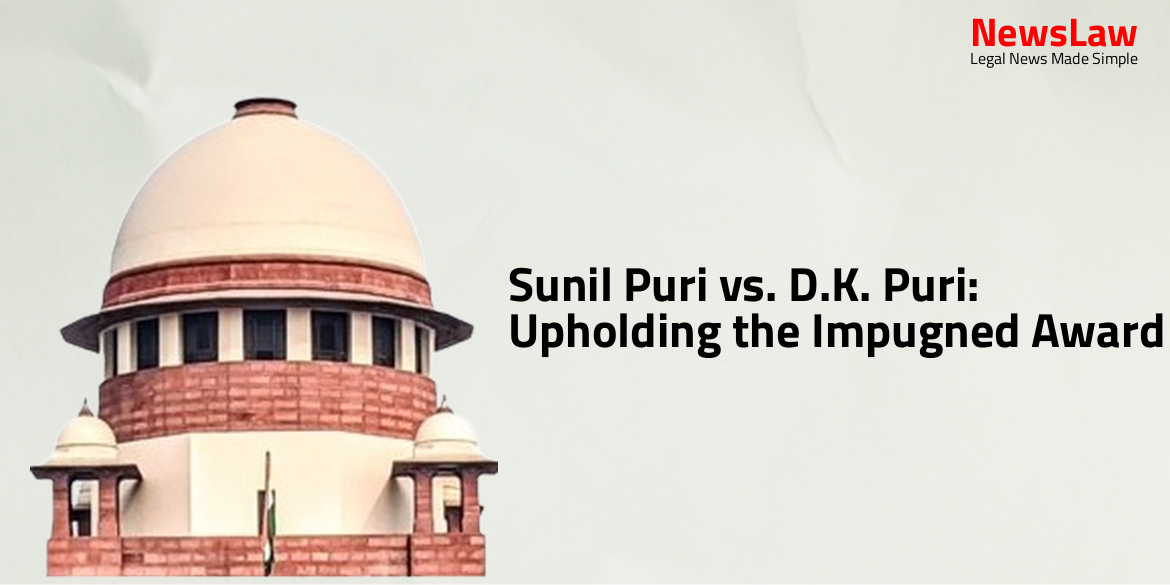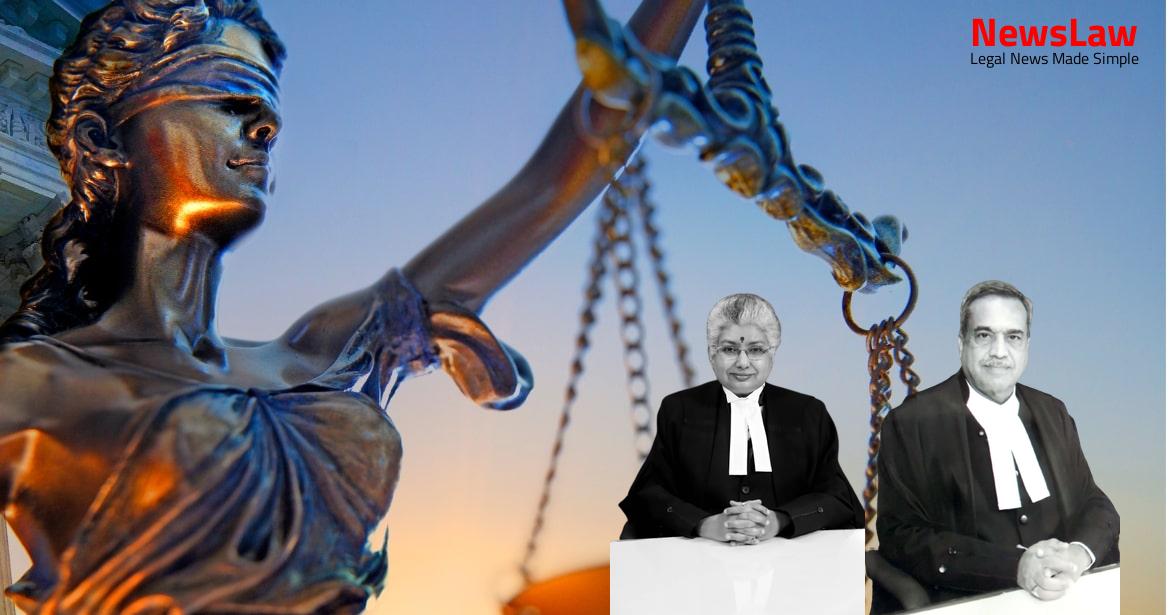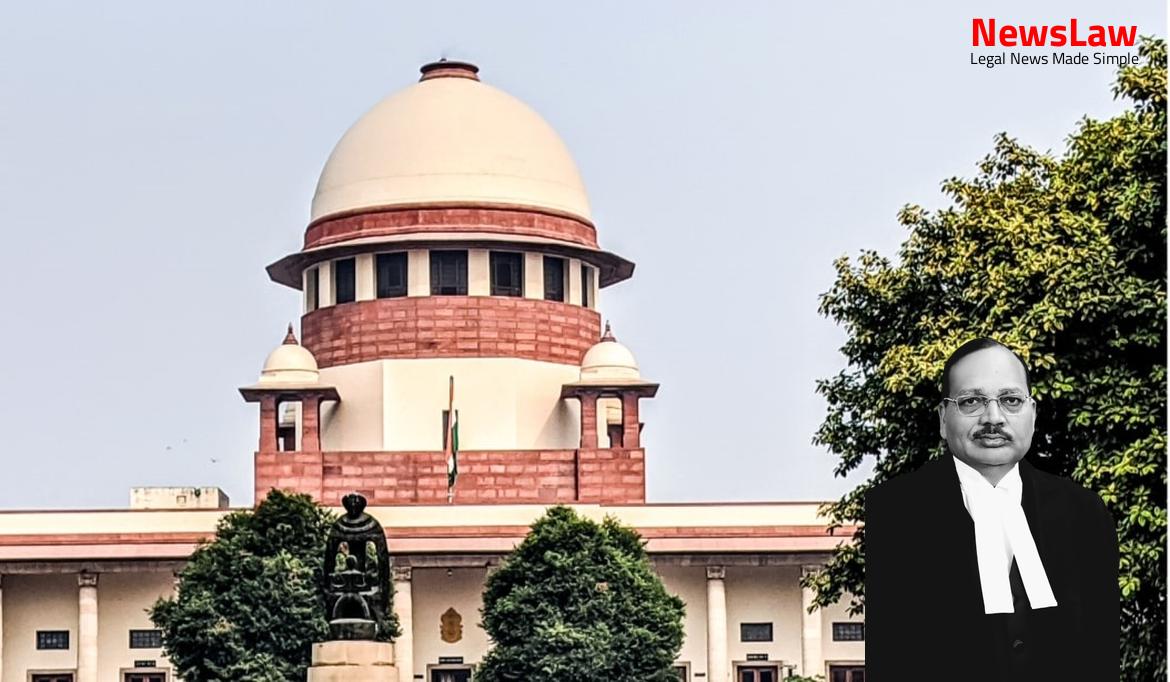The legal analysis conducted by the court in the recruitment scam investigation reveals a deep dive into aspects such as ex parte orders, principles of natural justice, and the role played by investigation agencies. The case sheds light on the importance of providing a fair opportunity for all parties involved and the necessity of upholding legal principles in judicial proceedings. Follow along as the court navigates through intricate legal issues and dictates the course of action in this complex legal saga.
Facts
- The Hon’ble Single Bench can monitor investigation into any money trail as necessary.
- The petitions stem from a Division Bench judgment upholding a Single Judge’s orders for CBI probe into irregularities in Assistant Primary Teachers’ recruitment through TET exam 2014.
- Single Judge accused the President of the Board of misleading the Court and found the recruitment process arbitrary and dishonest.
- Division Bench upheld CBI’s forensic investigation without interference, removed Dr. Manik Bhattacharya as President of the Education Board, and directed the State to appoint a new President.
- An expert committee found a question had two correct answers, leading to one mark being added to all candidates who chose the alternative correct answer.
- Invalidation of appointment of 269 candidates by Single Judge on 13 June 2022.
- 58 candidates have approached the court with an SLP.
- Candidates sought cancellation of appointment of others on grounds of corruption and lack of merit.
- Complaint in another writ petition regarding non-disclosure of information related to 68 candidates’ answer scripts.
- Multiple writ petitions were filed questioning the legality of the recruitment process.
- Board’s stand was that there were agitations and representations by unsuccessful candidates.
- Orders and directions from Single Judge categorized into three heads.
- First head includes the investigation by CBI, registration of a case, and interrogation of Board officials.
- Dr. Manik Bhattacharya directed to file affidavits of assets.
- Orders were passed subsequently in July, August, and September 2022.
- Cooperation with CBI was directed in the investigation.
- Altogether 23 lakh candidates participated in the selection process for approximately 43,000 vacancies.
- A direct appeal filed against the order of the Single Judge in September 2022.
- Background related to the order passed after the publication of regular and additional panels of successful candidates.
- Mention of the first writ petition filed in 2019 by Ramesh Malik and other aspirants.
- Direction for CBI to investigate OMR sheets of candidates in the examination.
- Invalidation of 269 successful candidates in a panel.
- Formation of a Special Investigation Team (SIT) by the CBI.
- Removal of the Board President, Dr. Manik Bhattacharya, who was added as a party respondent in a writ petition.
Also Read: Non-compliance with requirements of Section 81(3) of the Representation of the People Act, 1951
Arguments
- Petitioners argue that they were not given adequate opportunity for hearing and no specific allegations were made against them in the writ petitions.
- They believe they should have been given the chance to file an affidavit before any drastic action was taken against them.
- The petitioners claim they had served beyond four years and had permanent status in their posts.
- They criticize the orders directing the course of investigation, stating that they were made to appear guilty before having the chance to present their side.
- The CBI, represented by the Additional Solicitor General, argues for the continuation of the investigation into a recruitment scam of significant scale.
- Under normal circumstances, it is not appropriate to direct CBI investigation in a recruitment-related controversy unless the allegations are outrageous and the perpetrators are powerful.
- The reasons for directing CBI investigation may not meet the standards laid down in a previous case.
- However, considering the progress of the CBI investigation and the submission of learned counsel, the investigation should not be stalled at this stage.
- The plea to stay the investigation by the CBI has been declined.
- The writ petitioners, representing genuine candidates, seek recruitment in a fair and transparent manner.
Also Read: Setting Minimum Qualifying Marks for Viva Voce: A Question of Legality
Analysis
- The High Court’s order directing investigation based on vague and indefinite allegations violates principles of natural justice.
- Ex parte orders can be made by the Court in certain cases, but not without providing a reasonable opportunity for the affected party to be heard.
- The Single Judge should allow the 269 terminated candidates an opportunity to defend themselves before making a decision.
- The administrative set-up of police should be respected, and creating new channels of inquiry may cast stigma on regular police hierarchy.
- The direction to appoint a Special Officer for inquiry should not have been made without a prior hearing and proper investigation papers before the Court.
- The entire investigation shall be court-monitored, and periodic reports can be required from the investigation agencies.
- The accused is entitled to a right of hearing after submission of the charge-sheet, not before.
- It is crucial for the High Court to give notice to the accused before passing any order based on serious allegations.
- Opinion on the Divine Retreat Centre’s status under Article 21 of the Constitution is not necessary in this case.
- The appellant should have been put on notice before the High Court’s order was passed, especially considering the allegations levelled against them.
- Materials revealed in response to court orders influenced the decision to terminate appointments.
- Court played an investigative role by obtaining documents from recruiting bodies.
- Appointments were not recent.
- Duty of judiciary to uphold principles of natural justice emphasized in Divine Retreat Centre vs State of Kerala case.
Also Read: Willful Disobedience and Rectification of Court Orders
Decision
- Notice issued in SLP(C)No.17756 of 2022.
- Current President of West Bengal Board of Primary Education to remain in position until final outcome of writ petition.
- Order of Single Judge and Division Bench directing removal of President stayed.
- Dr. Manik Bhattacharya protected from coercive steps by CBI, no allegations of non-cooperation.
- Order protecting Dr. Manik Bhattacharya from coercive steps by CBI to continue.
- CBI to continue investigation as directed by Single Judge and file report in four weeks.
- Order cancelling 269 candidates by Single Judge stayed, individuals to be added as party respondents and defend their appointments.
- Appointing authority to proceed in accordance with law after writ court adjudicates on legality of appointments.
- Dr. Manik Bhattacharya entitled to file affidavits in response to allegations.
- Single Judge to make decisions on the pending writ petitions, including Dr. Manik Bhattacharya’s position.
- List matters after four weeks, with counter-affidavits to be filed within two weeks.
- Dr. Manik Bhattacharya entitled to defend his position in the writ petition by filing affidavits.
- Order removing Dr. Manik Bhattacharya stayed until further order of the Court.
Case Title: MANIK BHATTACHARYA Vs. RAMESH MALIK (2022 INSC 1109)
Case Number: C.A. No.-003204-003205 / 2023



